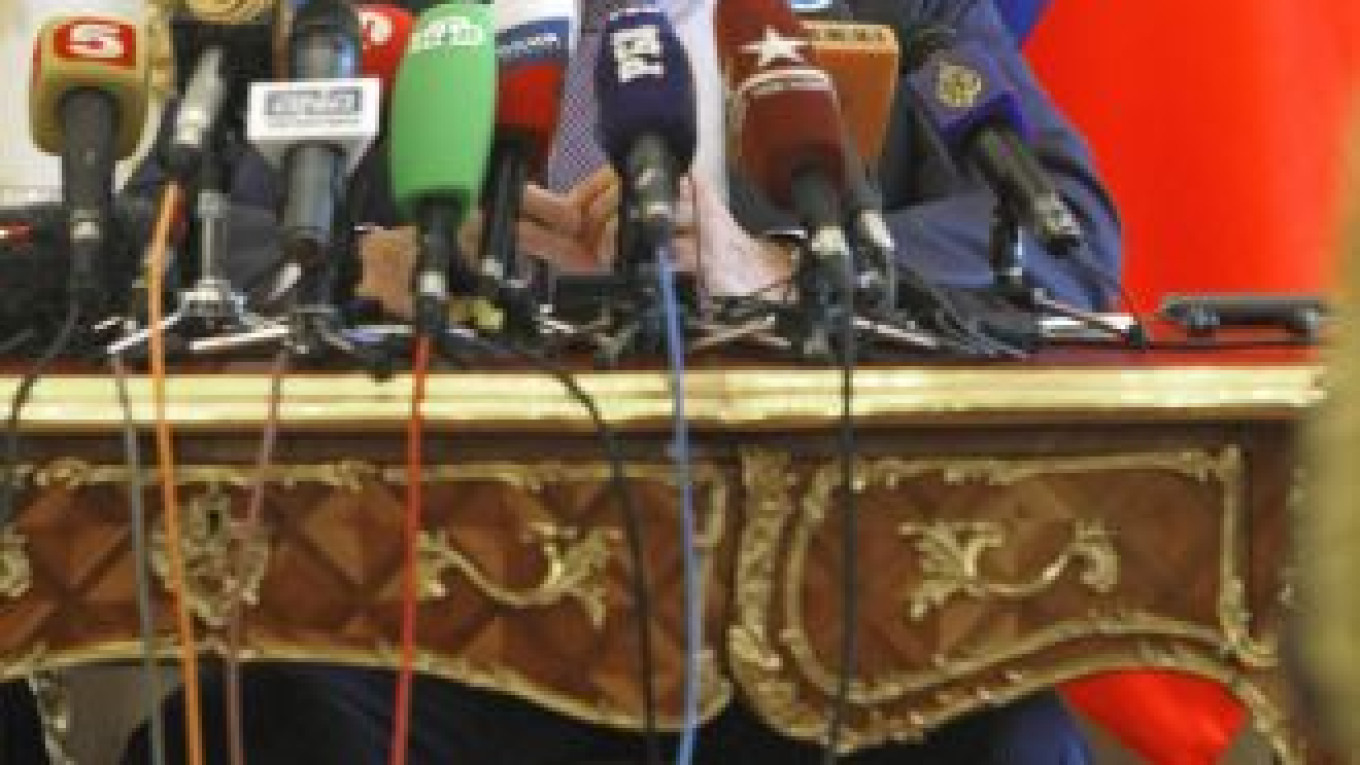Foreign Minister Sergei Lavrov warned the United States on Tuesday that putting conventional warheads on long-range missiles would jeopardize President Barack Obama's vision of a world free of nuclear weapons.
Two days before Obama is to sign a landmark nuclear arms reduction pact with President Dmitry Medvedev, Lavrov also repeated Moscow's warning that it could withdraw from the treaty if U.S. missile-defense plans threatened Russia.
But he suggested that the plans were unlikely to pose a threat in the near future.
Lavrov was drawing lines in the sand ahead of the signing by the presidents, in Prague, of a treaty committing the former Cold War foes to cut their arsenals of deployed nuclear warheads by about 30 percent.
He said Russia shared the goal of a world without nuclear arms, which Obama set out in Prague a year ago, but made clear that Russia wanted assurances that it would not end up at a strategic disadvantage.
"We believe the ultimate goal of a world without nuclear weapons is very important," Lavrov told a news conference. "But it's clear that it is impossible to move toward that goal in a vacuum.
"We are convinced that to speak seriously about practical steps toward a world without nuclear weapons, one must pay attention to a whole series of factors that could destabilize global strategic stability," Lavrov said.
Chief among those, he said, would be the emergence of space-based weapons and strategic missiles, such as the ICBMs, fitted with conventional warheads.
"To move toward a nuclear-free world, it is necessary to resolve the question of non-nuclear-equipped strategic offensive weapons and strategic weapons in general, which are being worked on by the United States, among others," Lavrov said.
"World states will hardly accept a situation in which nuclear weapons disappear, but weapons that are no less destabilizing emerge in the hands of certain members of the international community," he said.
Obama has acknowledged that the goal of a world without nuclear weapons may not be reached in his lifetime.
But his administration has indicated that it hopes further reductions will follow once the treaty to be signed Thursday, a successor to the 1991 Strategic Arms Reduction Treaty, is ratified by lawmakers.
Lavrov spoke hours before Obama unveiled a new policy calling for reduced U.S. reliance on its nuclear deterrent.
Under the revamped policy, the United States for the first time is forswearing use of atomic weapons against non-nuclear countries, a break with a President George W. Bush-era threat of nuclear retaliation in the event of a biological or chemical attack.
But the new strategy comes with a major condition that the countries will be spared a U.S. nuclear response only if they are in compliance with the Nuclear Non-Proliferation Treaty. That loophole means that Iran and North Korea would not be protected.
The administration also pledged to pursue further arms control with Russia beyond the New START pact.
"The United States will pursue high-level, bilateral dialogues on strategic stability with both Russia and China which are aimed at fostering more stable, resilient and transparent strategic relationships," it said.
Lavrov, meanwhile, stressed that Russia would consider withdrawing from the New START pact if U.S. plans for a missile shield threaten to compromise its security by weakening its nuclear deterrent.
But he hinted that was unlikely to happen soon, saying the U.S. plans did not pose a threat in their initial stages.
The U.S. plans "have several stages, and at the first stages we're talking about regional systems — systems that will not decrease strategic stability, will not create risks for Russia's strategic nuclear forces," he said.
A Message from The Moscow Times:
Dear readers,
We are facing unprecedented challenges. Russia's Prosecutor General's Office has designated The Moscow Times as an "undesirable" organization, criminalizing our work and putting our staff at risk of prosecution. This follows our earlier unjust labeling as a "foreign agent."
These actions are direct attempts to silence independent journalism in Russia. The authorities claim our work "discredits the decisions of the Russian leadership." We see things differently: we strive to provide accurate, unbiased reporting on Russia.
We, the journalists of The Moscow Times, refuse to be silenced. But to continue our work, we need your help.
Your support, no matter how small, makes a world of difference. If you can, please support us monthly starting from just $2. It's quick to set up, and every contribution makes a significant impact.
By supporting The Moscow Times, you're defending open, independent journalism in the face of repression. Thank you for standing with us.
Remind me later.


